A group of Australian researchers has found the first underwater Aboriginal archaeological sites off the north-western coast of the country.
One of the sites contained artefacts that are at least 7,000 years old, while the second held only one artefact, but it was 8,500 years old. Many of the items had marine life growing on them, but the team was able to identify a number of worked stone tools, including two possible grinding stones.
According to scientists, the Australian coast once extended 100 miles farther out to sea than it does now.
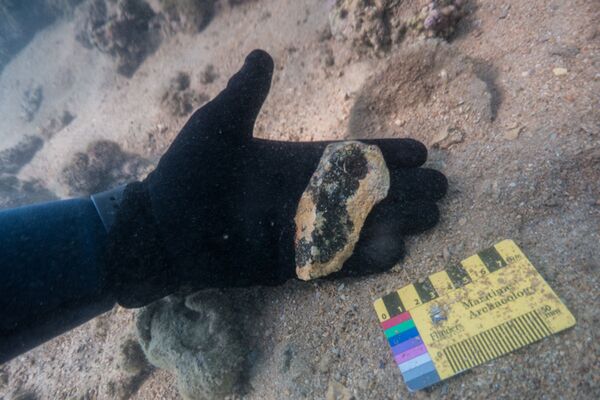
Aboriginal artefacts on the continental shelf reveal ancient submerged cultural landscapes in northwest Australia.
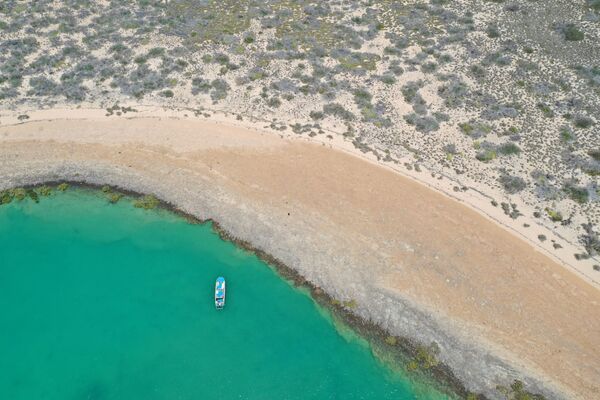
2/8
© REUTERS / Deep History of Sea Country Project & Flinders University, Maritime Archaeology Program
A general view of the area where researchers from Flinders University, the University of Western Australia, and James Cook University discovered underwater artefacts dating back thousands of years, when the seabed was dry land, in Australia, 2019.
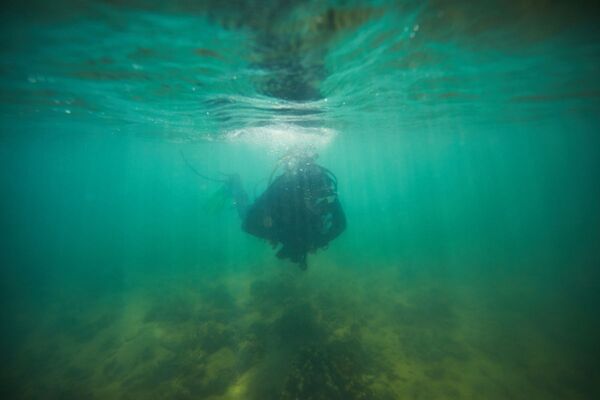
Scientists sent divers to explore possible locations of underwater Aboriginal sites.
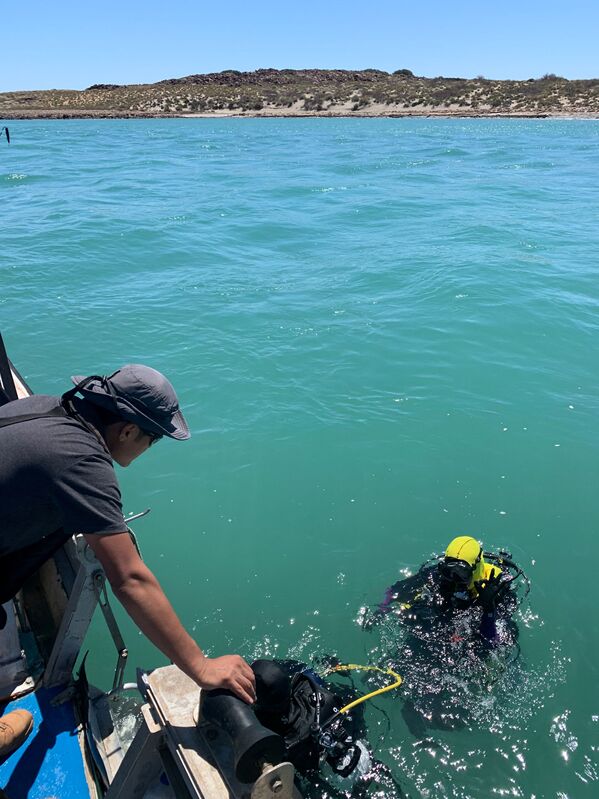
4/8
© REUTERS / Deep History of Sea Country Project & Flinders University, Maritime Archaeology Program
Researchers from Flinders University, the University of Western Australia, and James Cook University working on discovering underwater artefacts dating back thousands of years when the seabed was dry land, in the Dampier Archipelago in Australia, 2019.
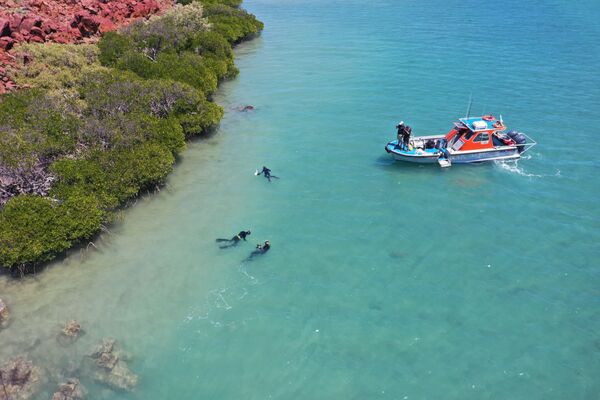
5/8
© REUTERS / Deep History of Sea Country Project & Flinders University, Maritime Archaeology Program
Researchers from Flinders University, the University of Western Australia, and James Cook University working on discovering underwater artefacts dating back thousands of years when the seabed was dry land, in the Dampier Archipelago in Australia, 2019.
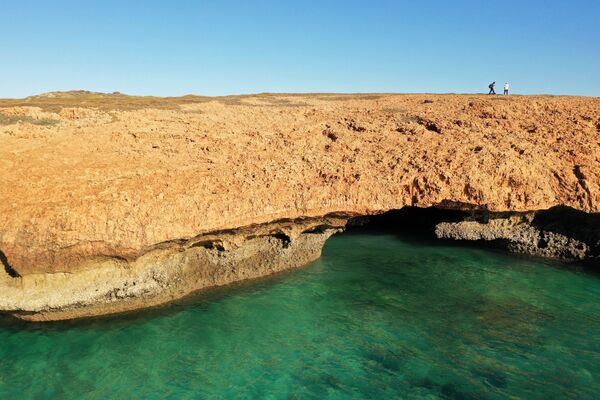
6/8
© REUTERS / Deep History of Sea Country Project & Flinders University, Maritime Archaeology Program
A general view of the area where researchers from Flinders University, the University of Western Australia, and James Cook University discovered underwater artefacts dating back thousands of years, when the seabed was dry land, in Australia, 2019.
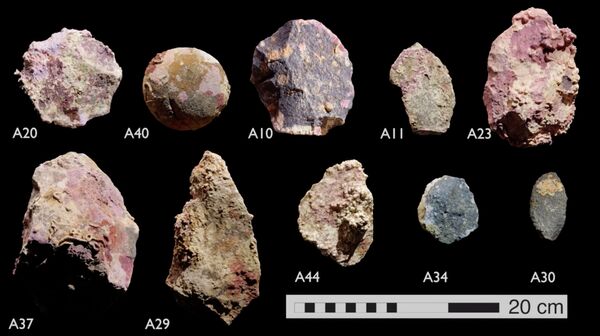
7/8
© REUTERS / Deep History of Sea Country Project & Flinders University, Maritime Archaeology Program
Underwater artefacts dating back thousands of years when the seabed was dry land, found by researchers from Flinders University, the University of Western Australia, and James Cook University, are seen in this undated hand-out picture taken from a video.
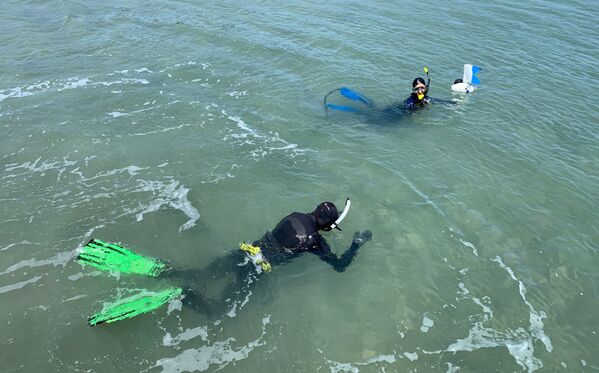
8/8
© REUTERS / Deep History of Sea Country Project & Flinders University, Maritime Archaeology Program
Divers searching for underwater artefacts that date back thousands of years when the seabed was dry land, in the Dampier Archipelago in Australia, 2019.

